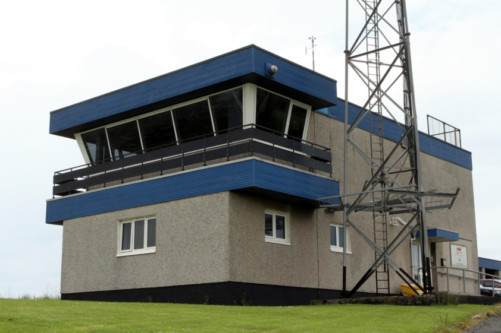MORALE AMONG Scotland’s coastguards has suffered because of “prolonged and unnecessary” uncertainty over their roles, according to a former watch officer at the recently closed Forth Coastguard.
Former Fife councillor and army major Mike Scott-Hayward, who worked as a coastguard officer at Fife Ness for 11 years before it closed in September, said an “atmosphere of uncertainty” had made conditions very difficult for staff.
Mr Scott-Hayward, who is also chairman of UKIP Scotland, spoke out after a report by a committee of MPs said coastguards have been left “confused and disillusioned” by government changes to their service.
The Transport Committee said the government “had not yet fully explained” how the new system which involves some closures would work.
Too many coastguards were “drifting out” with “a risk that talent and expertise will haemorrhage”, they said.
Ministers have rejected the criticism and said safety remained the priority.
Mr Scott-Hayward told The Courier: “The overall change the coastguards are undergoing is, in my view, a consequence of our continual economic state and having to cut because, as a country, we’ve got ourselves into a silly mess.
“It was inevitable that the Government was not going to budge on the plans that led to the closure of Forth Coastguard because they were not going to find the extra money to keep it open.
“They have gone for a perfectly feasible and viable more technical approach, which sees the waters down the east coast controlled from Aberdeen.
“I consider local knowledge to be important, but it is not insoluble. For the maritime service serving ships, the service will not be downgraded.
“We should also remember the RNLI provision is also still there, providing an excellent service.
“But the person who is walking the Fife coastal path, particularly if they are visitors who do not know the area I think they are at slightly greater risk.
“If they dial 999, a grid reference can be taken from a mobile phone, but this can only be taken if there is more than one mast.
“For example, we took a call from a German tourist who said she was stuck down cliffs at a big hotel.
“The grid reference showed her to be in Forfar and it therefore could have been a hoax, but my local knowledge pinpointed her to near the St Andrews Bay Hotel, and that’s where we found her.”
Forth Coastguard has already closed and under government plans the Clyde, Portland, Liverpool, Yarmouth, Brixham, Thames and Swansea coastguard stations will follow.
Ministers believe there should be one maritime operations centre in the Solent area, in Hampshire, with back-up provided by the Dover station in Kent.
But the Transport Committee report said there was a “worrying lack of information about what coastguards at the MOC (maritime operations centre) will actually do from day to day”.
In response to the report, shipping minister Stephen Hammond said: “Safety remains our top priority.
“Our reforms to modernise the coastguard will deliver a more resilient and effective rescue system, with faster response times, benefiting all parts of the UK.”
He added: “We also have some concerns that the committee has given too much weight to anecdotal evidence and too little to the evidential testimony of the MCA and the DfT.
“We would disagree that we have been complacent and contradictory.”
malexander@thecourier.co.uk
